A license agreement is a legally binding document that outlines the terms and conditions of a license granted by the licensor to the licensee. It is essential to have a foolproof and error-free license agreement template when granting someone the rights to use, produce, or sell your intellectual property. The importance of a license agreement cannot be overstated, as it ensures that both parties are aware of their rights and obligations and protects the licensor’s intellectual property from unauthorized use or infringement.
Crafting a comprehensive and well-drafted license agreement requires a certain degree of competency and skill. In this article, we will discuss the key elements of a license agreement, and provide a guide on how to draft a foolproof and error-free license agreement template that will protect your intellectual property and ensure the success of your licensing arrangement.
Table of Contents
License Agreement Templates
Ensure a clear and legally binding agreement with our comprehensive License Agreement templates. Whether you need to license intellectual property, software, or any other type of asset, our templates provide a framework for outlining the terms and conditions of the license. Customize the agreement to specify the scope of the license, the rights and obligations of both parties, and any limitations or restrictions.
Our templates are designed to protect your interests and establish a solid foundation for a successful licensing relationship. With a professionally drafted License Agreement, you can confidently grant or obtain licenses, secure your intellectual property, and maintain a mutually beneficial business arrangement. Download, customize, and print our License Agreement templates for a hassle-free and efficient licensing process. Simplify the negotiation and documentation process with our user-friendly templates and ensure that your license agreements are accurate, comprehensive, and legally enforceable.
Understanding When to Utilize a License Agreement

A license agreement is a legally binding document that outlines the terms and conditions of a license granted by the licensor to the licensee. It is used to grant someone else the right to use, produce, or sell the licensor’s intellectual property, such as a patent, trademark, or copyrighted work.
There are several situations when a license agreement is necessary:
When granting someone else the right to use your intellectual property: For example, if you have developed a software application and want to allow another company to use it, a license agreement is necessary to define the terms of use, such as any restrictions on use, the length of the license, and any fees involved.
When producing or selling a product: For example, if you want to manufacture a product using someone else’s patent or trademark, you will need a license agreement to define the terms of use and any royalties that need to be paid.
When outsourcing work: For example, if you are hiring a contractor to create a product or service for your company and you want to retain the rights to the final product, a license agreement is necessary to define the terms of use and ownership of the final product.
When creating a franchise: If you want to allow another company to use your brand, logo, or business model, a license agreement is necessary to define the terms of use and any fees involved.
When entering into a joint venture: If you are partnering with another company to create a new product or service and you want to retain the rights to your intellectual property, a license agreement is necessary to define the terms of use and any royalties that need to be paid.
Key elements of a license agreement
The key elements of a license agreement include:
Identification of the parties: The license agreement should clearly identify the licensor (the owner of the intellectual property) and the licensee (the party being granted the license).
Description of the intellectual property: The license agreement should clearly describe the intellectual property being licensed, such as a patent, trademark, or copyrighted work.
Grant of license: The license agreement should clearly state the scope of the license being granted, including any restrictions on use, the length of the license, and any territory or field of use restrictions.
Consideration: The license agreement should clearly state any fees or royalties that the licensee is required to pay to the licensor.
Representations and warranties: The license agreement should include representations and warranties from both parties to ensure that the intellectual property is valid and enforceable and that the parties have the right to enter into the agreement.
Indemnification: The license agreement should include provisions for indemnification, which require one party to reimburse the other party for any losses or damages that may occur as a result of the license.
Termination: The license agreement should include provisions for termination, which allow either party to terminate the agreement under certain conditions.
Governing law and jurisdiction: The license agreement should specify the governing law and jurisdiction, which will govern the agreement and any disputes that may arise under the agreement.
Confidentiality: The license agreement should include a confidentiality provision to protect any confidential or proprietary information that may be shared between the parties during the course of the agreement.
Assignment and Sub-licensing: The license agreement should include provisions that govern the ability of the parties to assign or sub-license the rights granted under the agreement.
Dispute Resolution: The license agreement should include provision for dispute resolution, such as mediation or arbitration, in case of any disputes that may arise under the agreement.
Notices: The license agreement should include provisions for providing notices, such as how notices should be delivered and to whom they should be delivered.
Types of license agreement
It’s important to note that the type of license agreement will depend on the specific circumstances of the licensing arrangement and the needs of the parties involved. Different types of license agreements will have different terms, conditions and implications for both the licensor and the licensee, and it’s important to choose the type of license agreement that best fits the needs of the parties.
It’s also important to have a legal professional review and draft the license agreement to ensure that it is legally binding and enforceable, and to fully understand the rights and obligations of both parties under the agreement.
There are several types of license agreements, each with their own specific terms and conditions. Some of the most common types include:
Exclusive license
An exclusive license grants the licensee the exclusive right to use, produce, or sell the licensed intellectual property within a specific territory or field of use. The licensor cannot grant a similar license to any other party during the term of the agreement.
Non-exclusive license
A non-exclusive license grants the licensee the right to use, produce, or sell the licensed intellectual property, but the licensor can grant similar licenses to other parties.
Limited license
A limited license grants the licensee the right to use, produce, or sell the licensed intellectual property, but the license may be limited by certain terms and conditions, such as the length of the license, the territory or field of use, or the number of units that can be produced or sold.
Sublicense
A sublicense grants the licensee the right to grant a sublicense to a third party, allowing the third party to use, produce, or sell the licensed intellectual property.
Royalty-based license
A royalty-based license grants the licensee the right to use, produce, or sell the licensed intellectual property in exchange for the payment of a royalty fee to the licensor.
Custom license
A custom license is a license agreement that is tailored to the specific needs and circumstances of the parties involved. It may include terms and conditions that are not found in standard license agreements.
Enterprise license
An enterprise license grants the licensee the right to use the licensed intellectual property across an entire organization or enterprise, rather than on an individual basis.
Open-source license
An open-source license allows the licensee to use, modify, and distribute the licensed intellectual property for free or for a reduced fee, with certain restrictions.
What are the steps to get my property licensed?
There are several steps that you can take to get your property licensed:
Research the market: Research the market to determine the demand for your intellectual property and the potential licensing opportunities that are available.
Identify potential licensees: Identify potential licensees who may be interested in licensing your intellectual property. This can include companies in the same or related industries, or companies that have previously expressed interest in similar products or services.
Prepare your intellectual property: Ensure that your intellectual property is properly protected, such as by obtaining patents, trademarks, or copyrights.
Create a licensing proposal: Create a licensing proposal that outlines the terms and conditions of the license, including the scope of the license, any restrictions on use, and any fees or royalties that will be required.
Negotiate the terms of the license: Negotiate the terms of the license with the potential licensee, and make any necessary revisions to the licensing proposal.
Draft and execute the license agreement: Draft and execute a license agreement that includes all of the terms and conditions agreed upon during negotiation.
Monitor and enforce the license: Monitor the use of your intellectual property by the licensee, and enforce the terms of the license if necessary.
It’s important to keep in mind that licensing your intellectual property can be a complex and time-consuming process. It’s recommended to seek the advice of a legal professional to ensure that the agreement is legally binding and enforceable, and to fully understand the rights and obligations of both parties under the agreement.
FAQs
Can I terminate a license agreement?
Yes, most license agreements include provisions for termination, which allow either party to terminate the agreement under certain conditions, such as breach of contract or non-payment of royalties.
Can a license agreement be transferred?
It depends on the terms of the license agreement. Some license agreements include provisions that govern the ability of the parties to assign or sub-license the rights granted under the agreement. It’s important to review the specific terms of the agreement to determine whether transfer is allowed or not.
Can a license agreement be renewed?
It depends on the terms of the license agreement. Some license agreements include provisions for renewal, while others may have a set expiration date. It’s important to review the specific terms of the agreement to determine whether renewal is possible or not.
Can a license agreement be amended?
Yes, a license agreement can be amended with the mutual consent of both parties. It’s important to have any amendments to the agreement documented in writing and signed by both parties.
What happens if a party breaches the license agreement?
If a party breaches the license agreement, the other party may have the right to terminate the agreement and take legal action to seek damages. It’s important to review the specific terms of the agreement to determine the consequences of a breach.
What should I do if I am uncertain about a term in the license agreement?
It’s important to seek legal advice if you are uncertain about a term in the license agreement. A lawyer will be able to explain the terms of the agreement and help you understand your rights and obligations under the agreement.
How long does a license agreement last?
The duration of a license agreement will depend on the specific terms of the agreement. Some license agreements may have a set expiration date, while others may be ongoing. It’s important to review the specific terms of the agreement to determine the duration of the license.



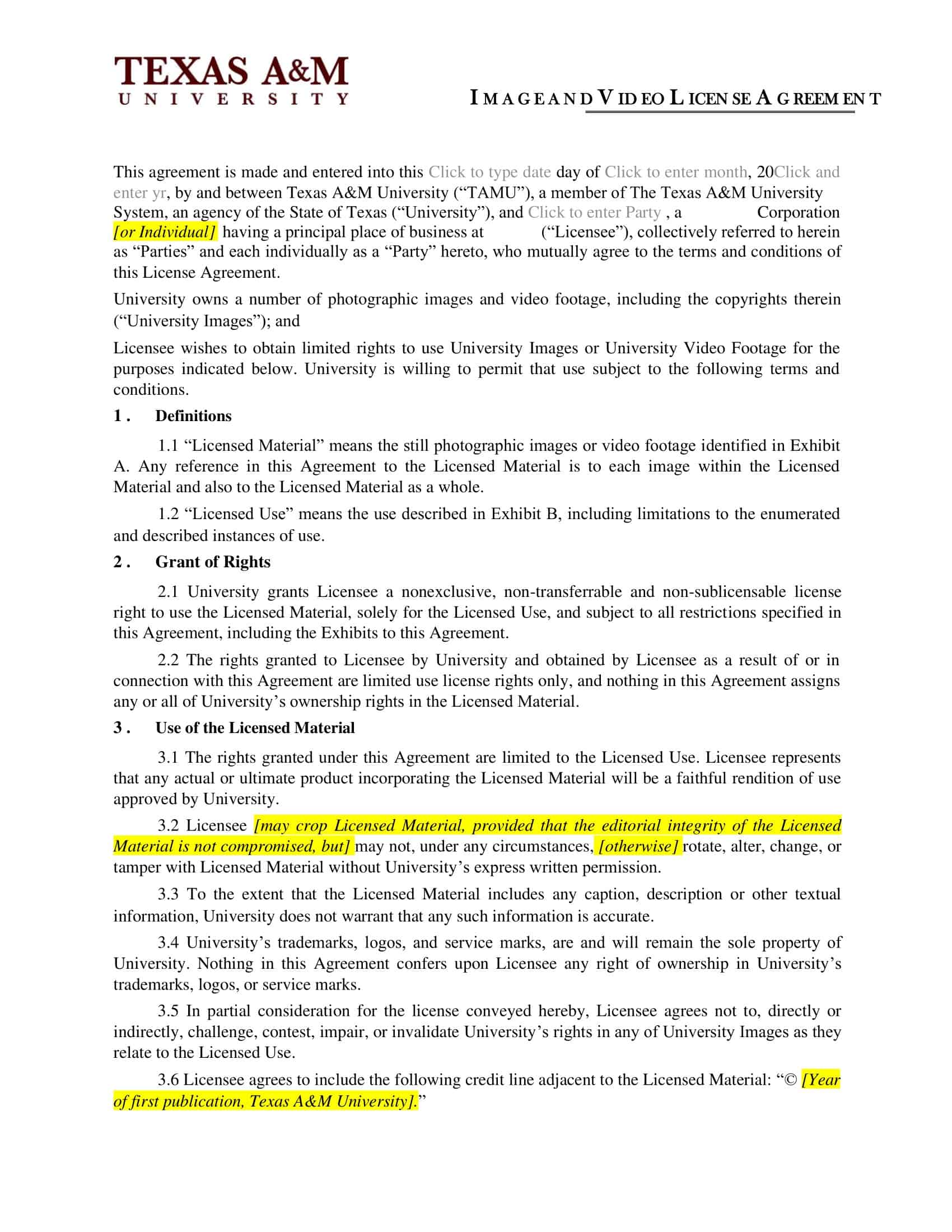
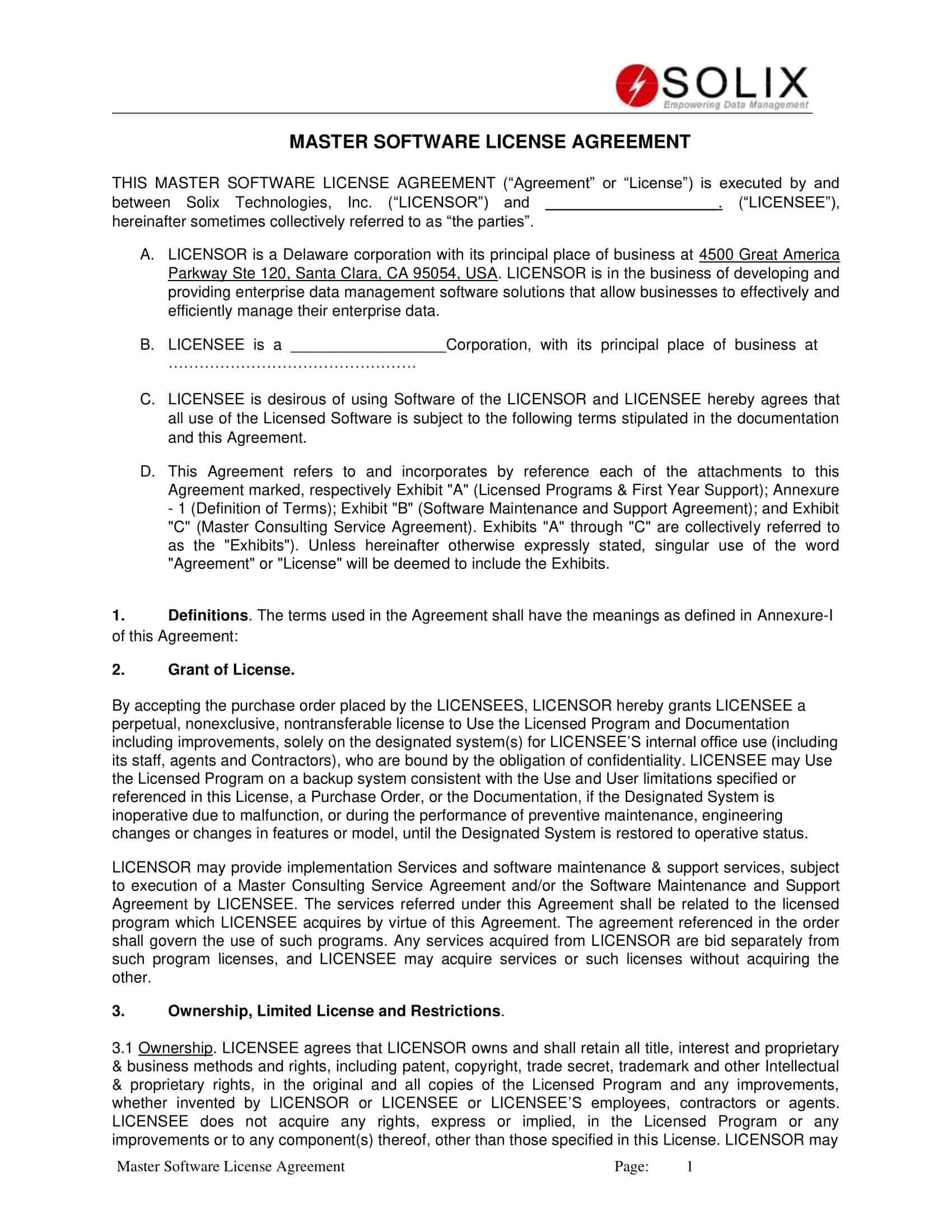


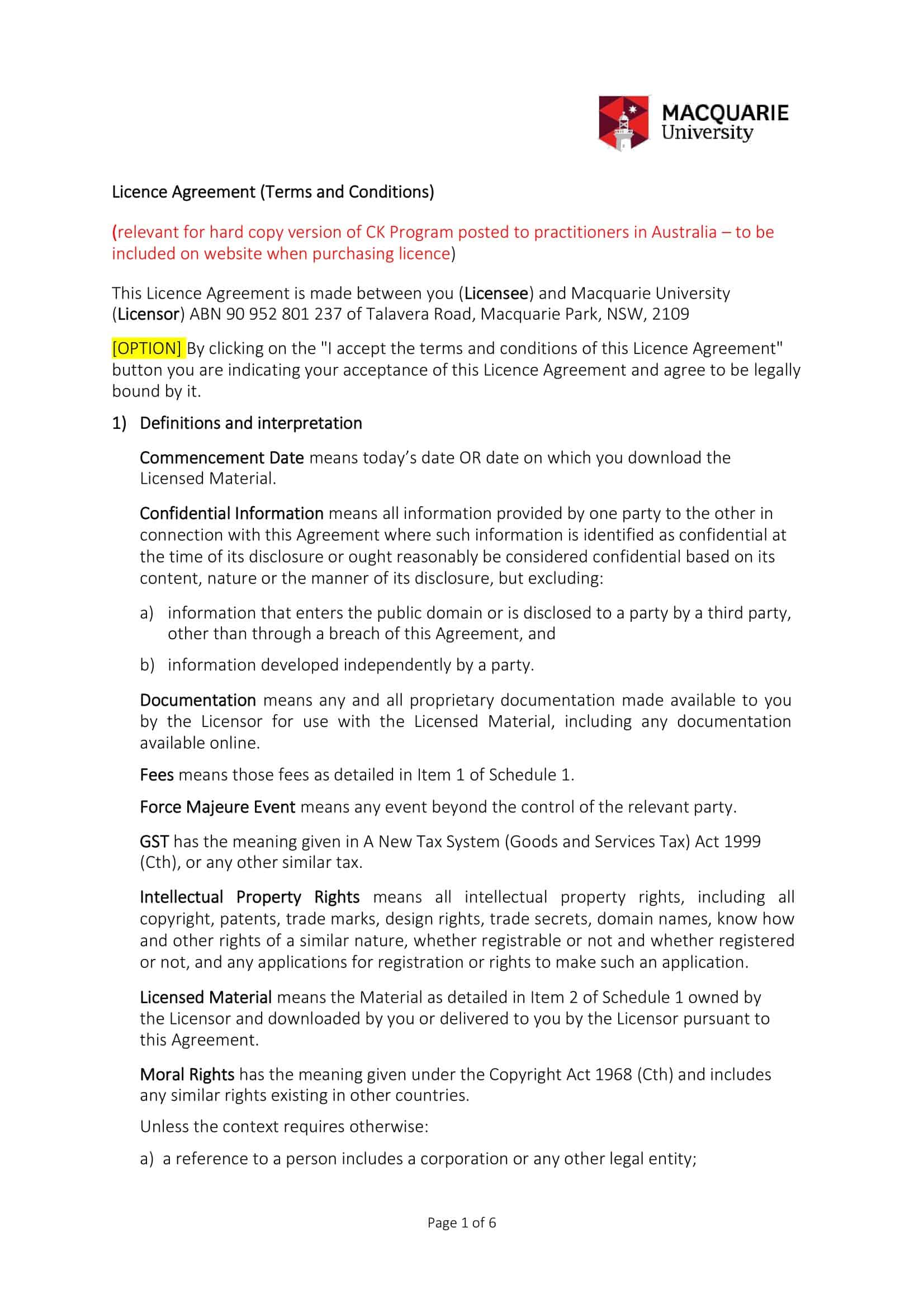













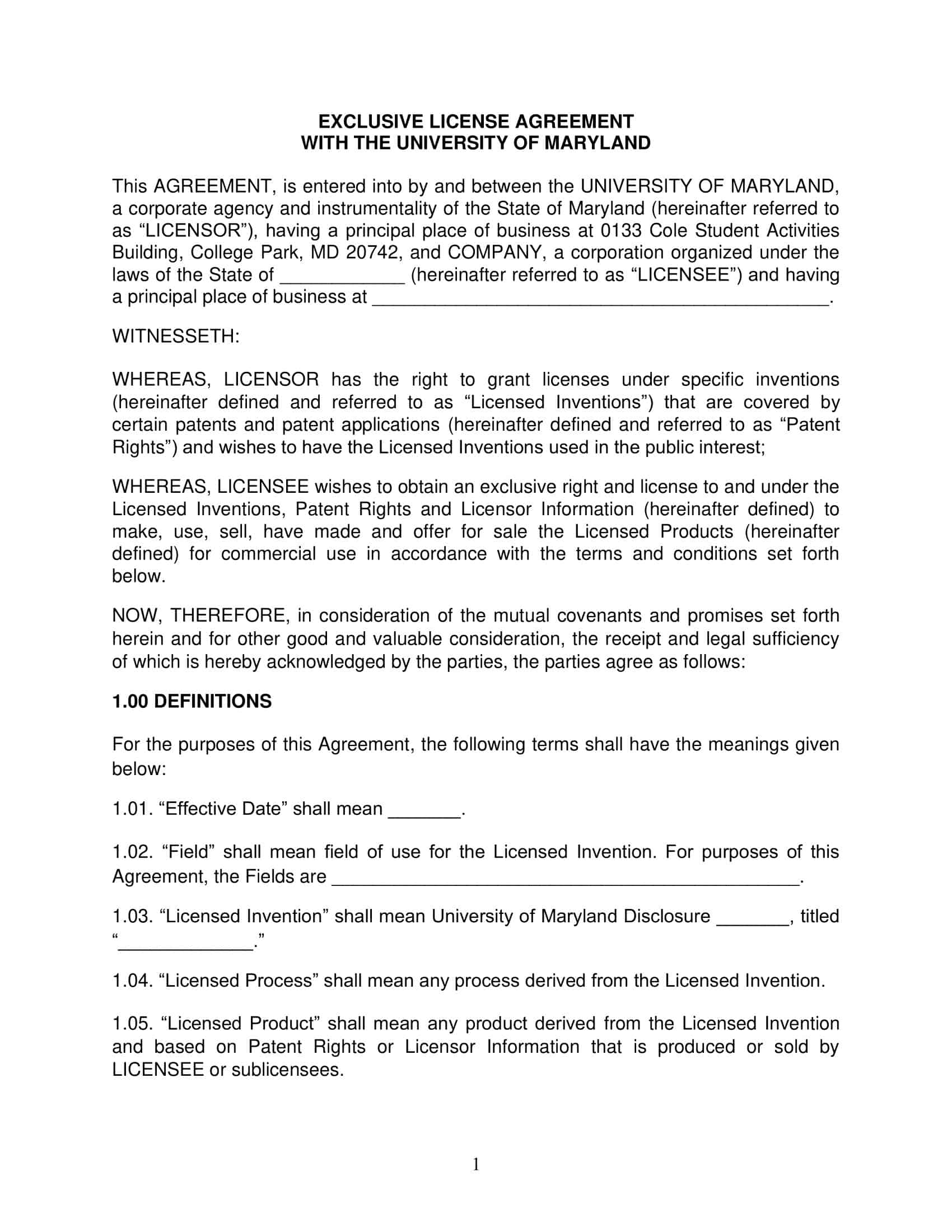

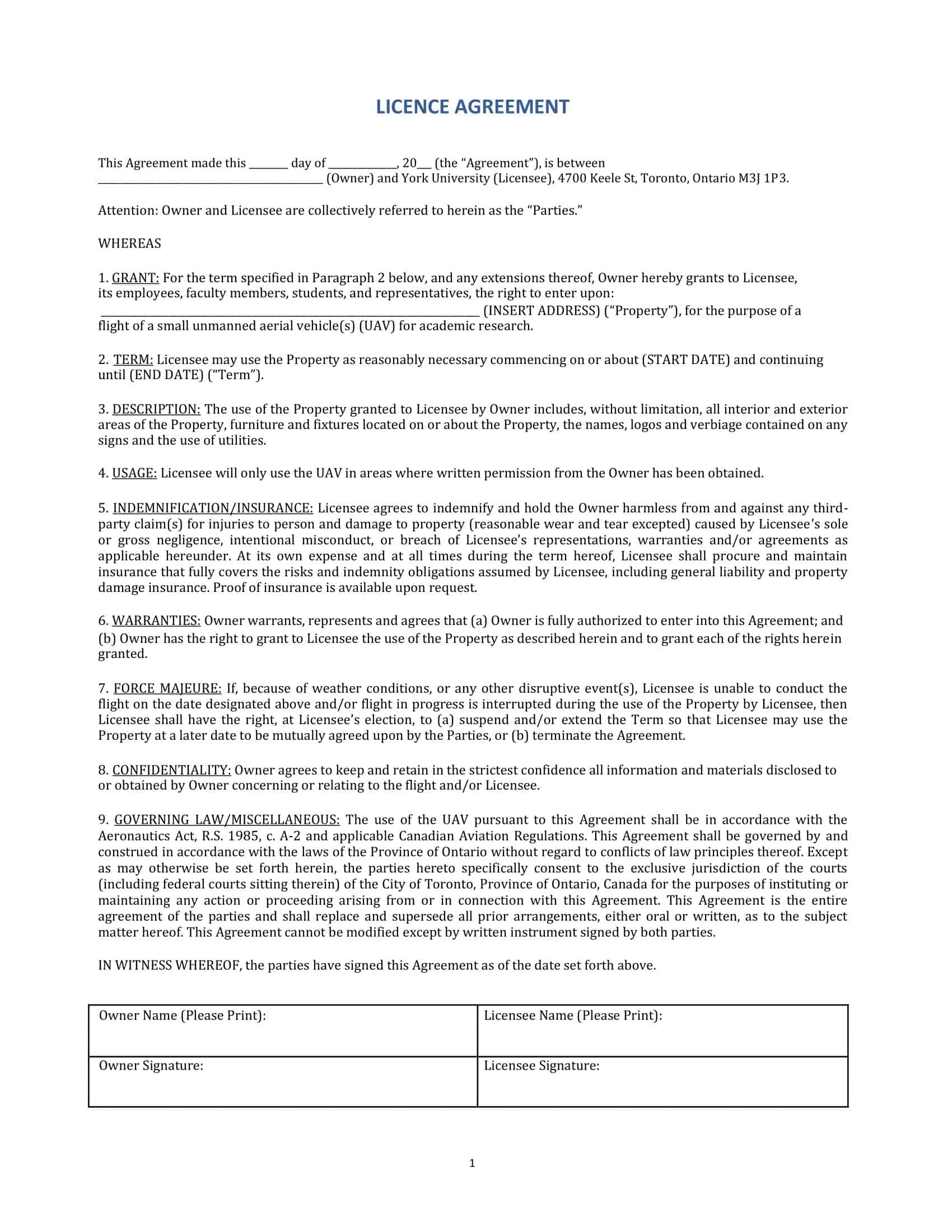



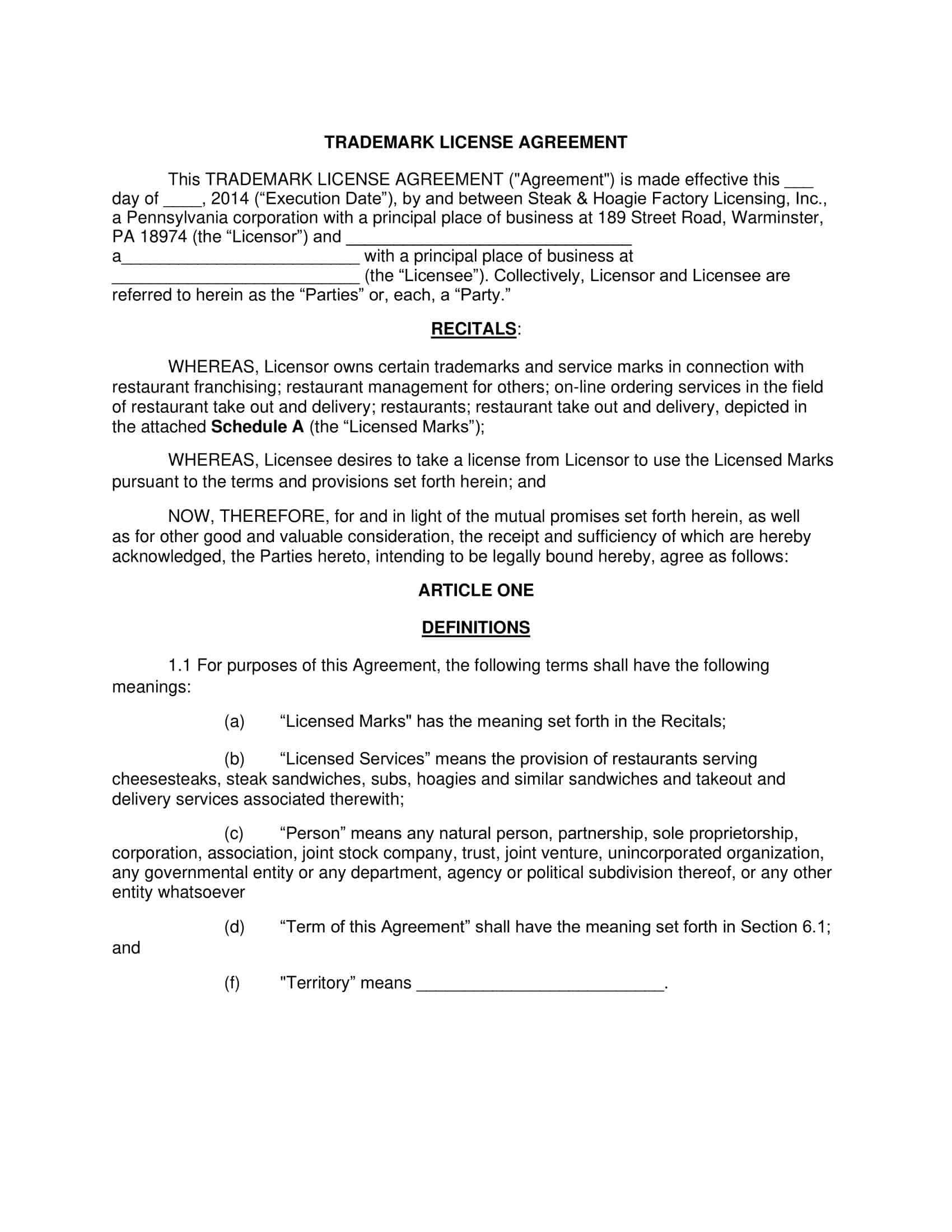








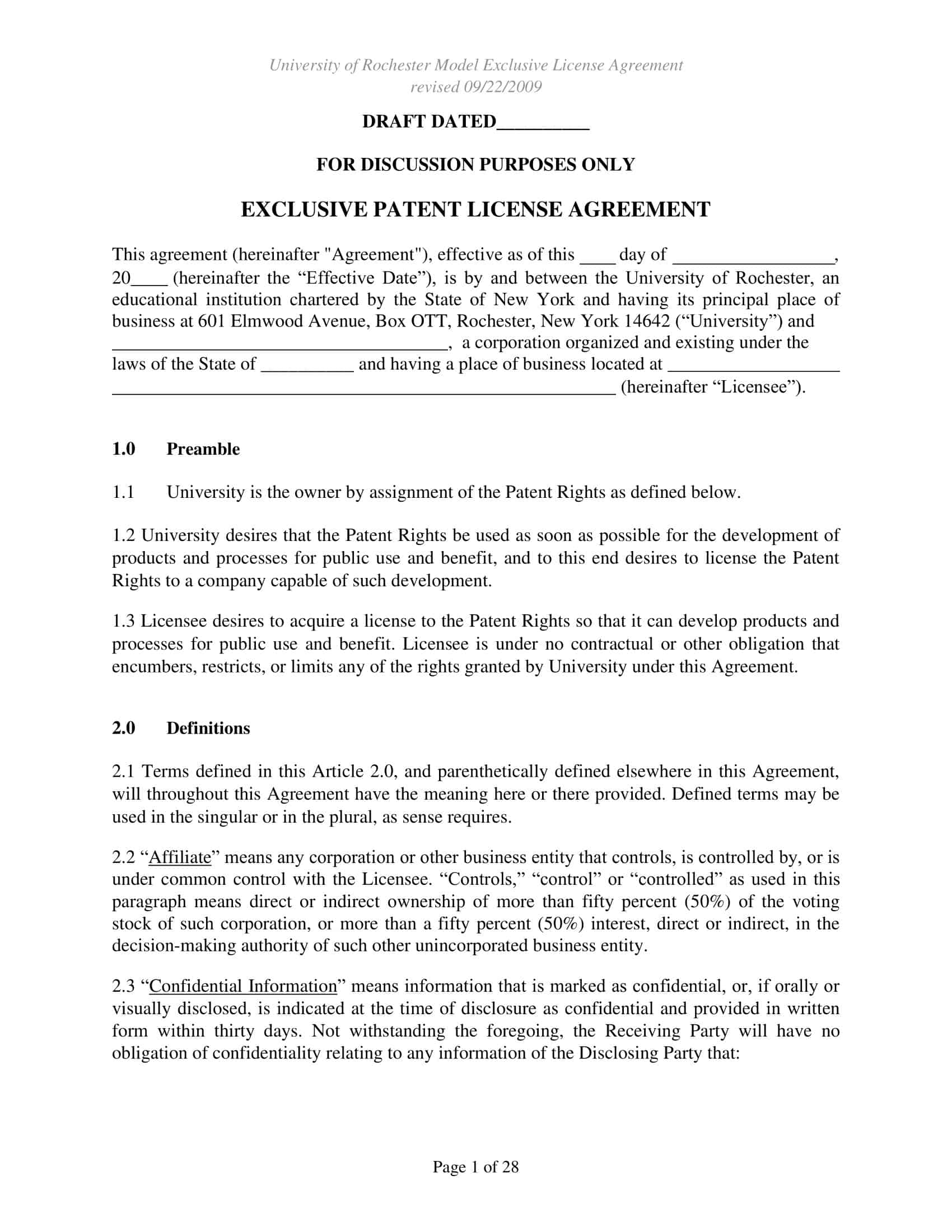











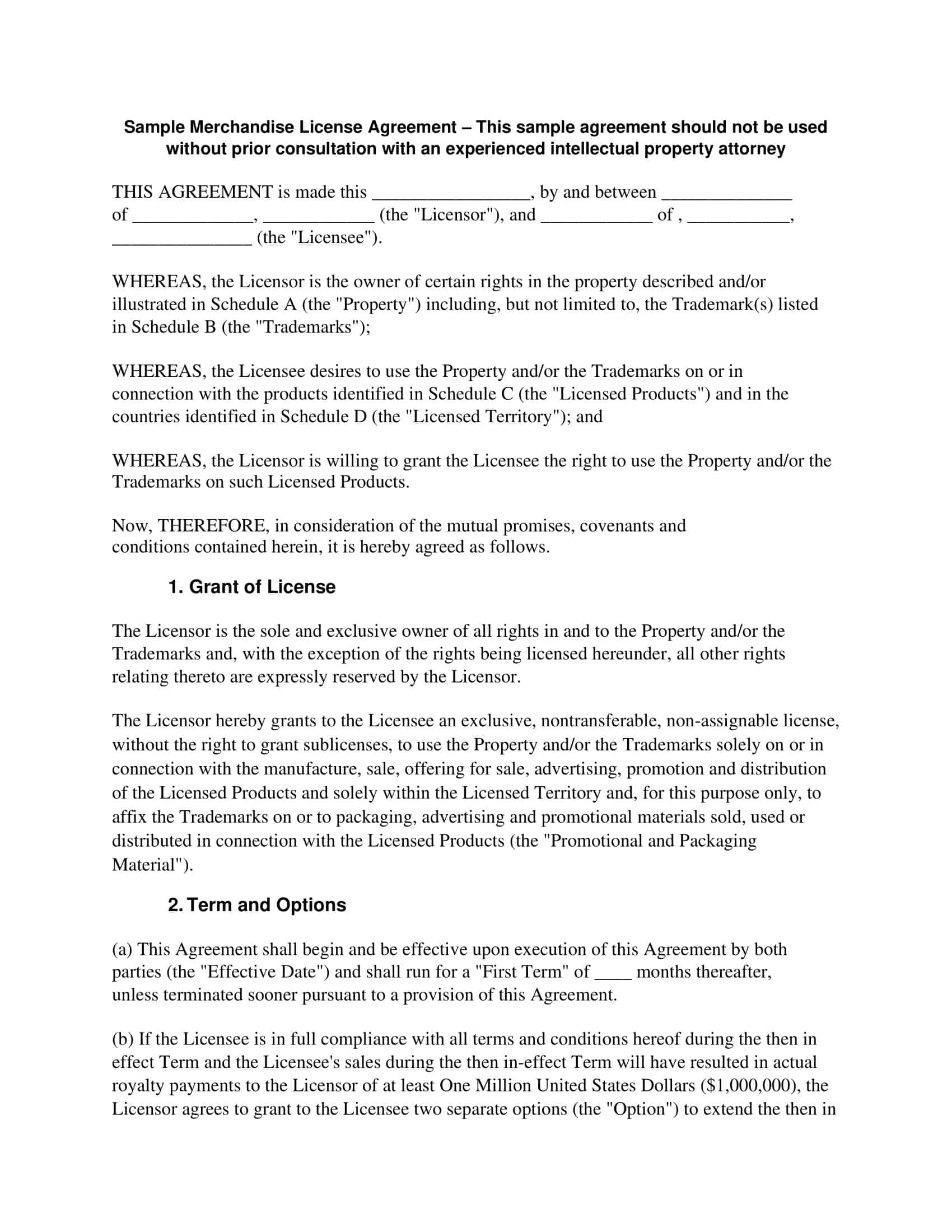
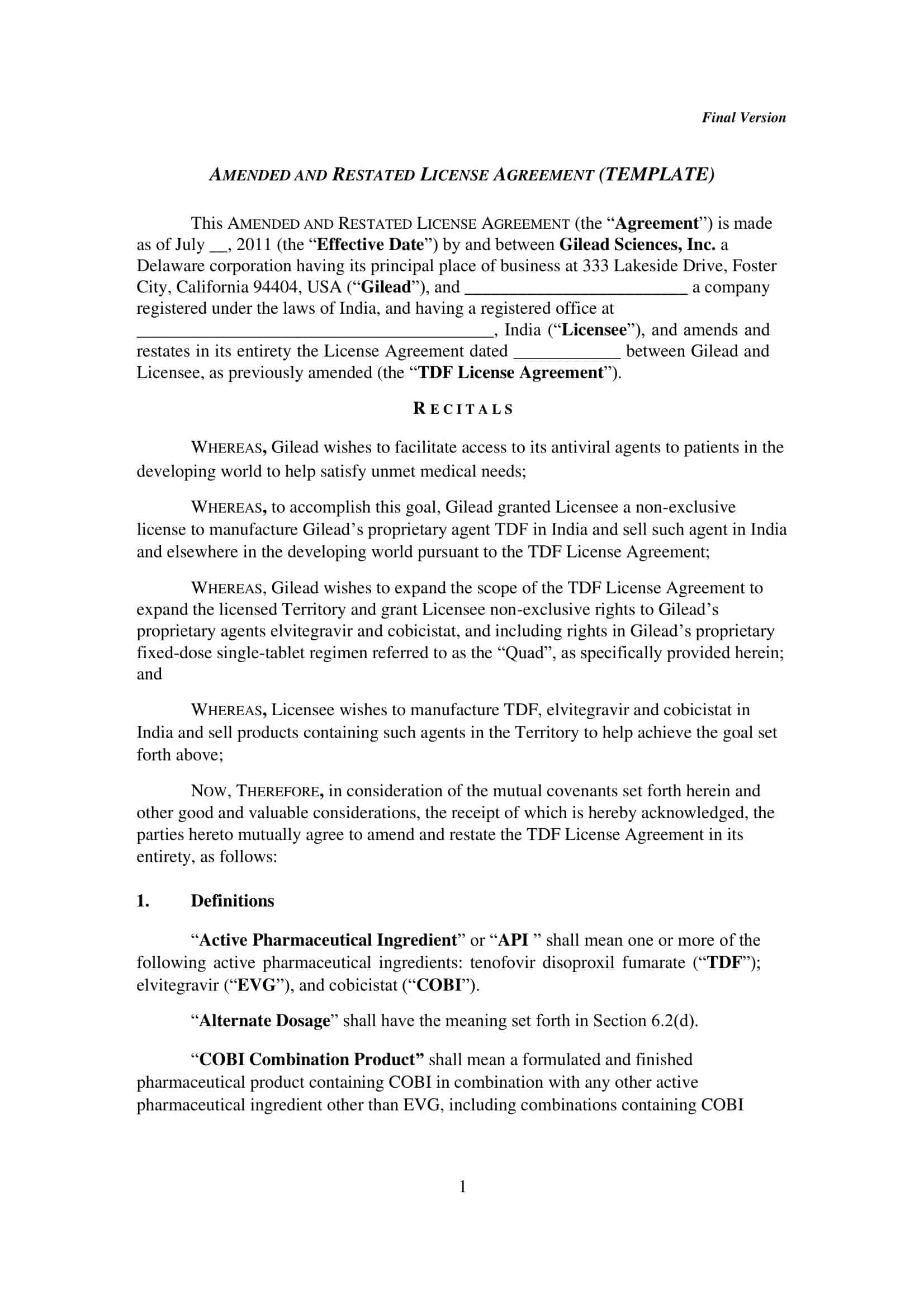
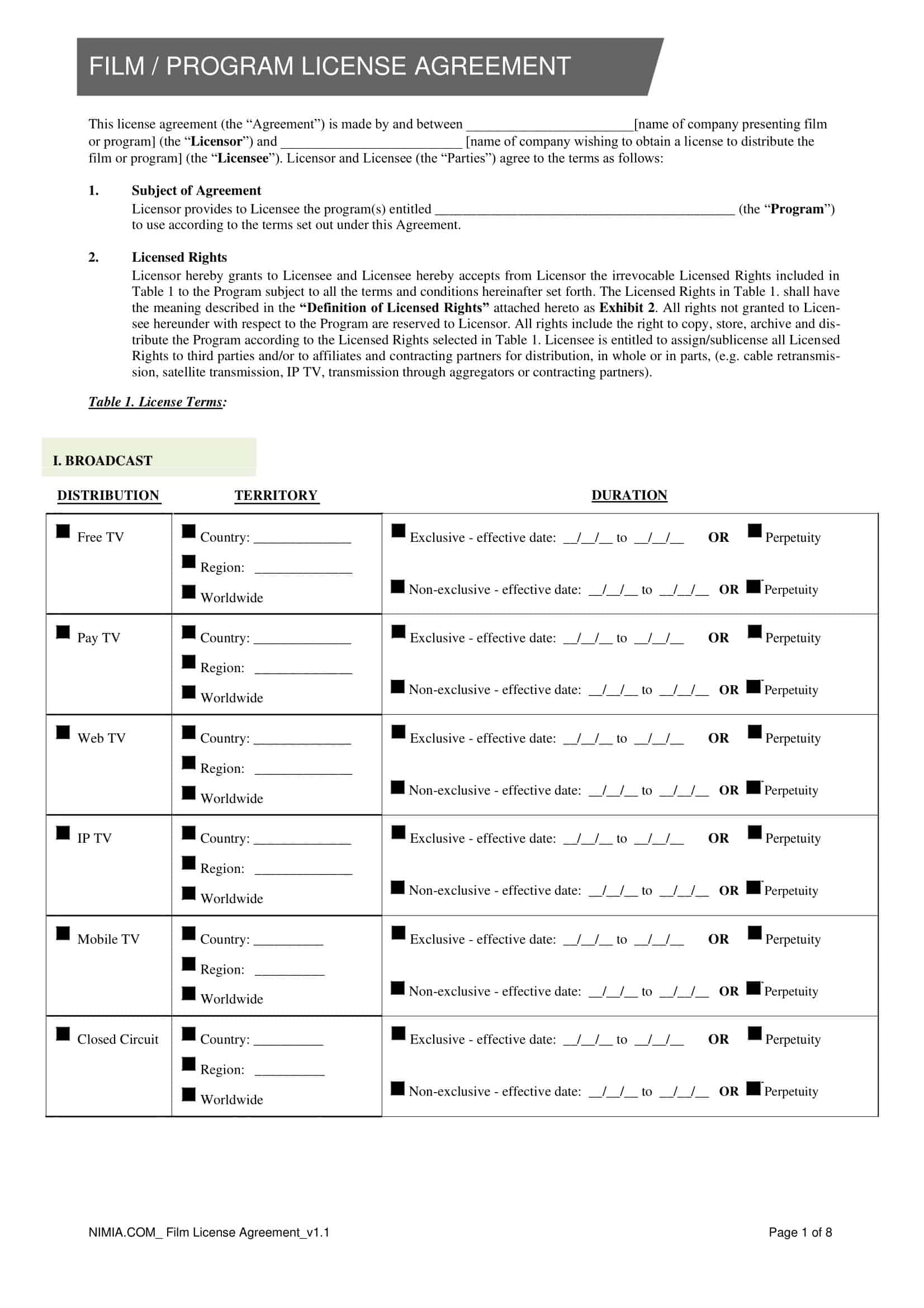
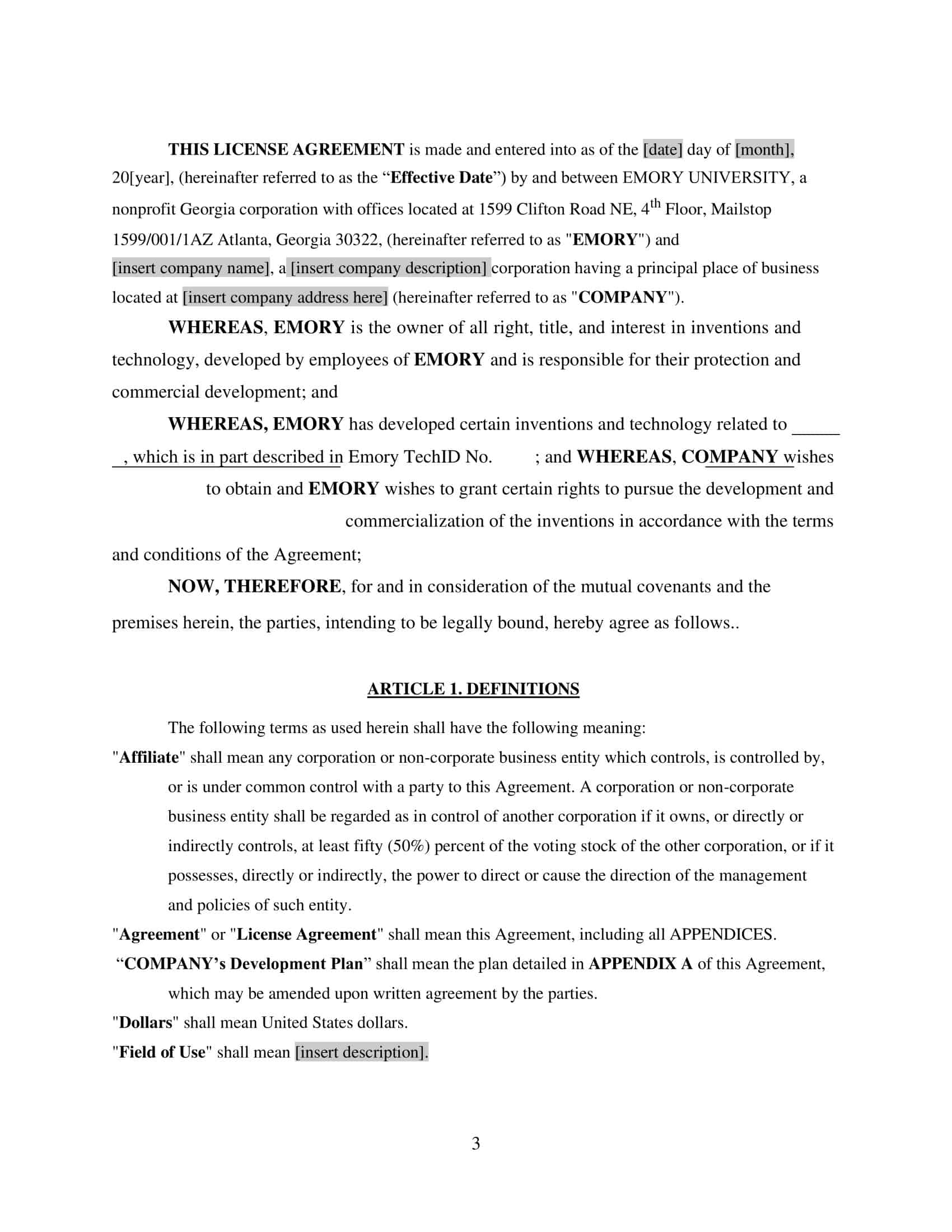
![Free Printable Roommate Agreement Templates [Word, PDF] 1 Roommate Agreement](https://www.typecalendar.com/wp-content/uploads/2023/06/Roommate-Agreement-150x150.jpg)
![Free Printable Payment Agreement Templates [PDF, Word] 2 Payment Agreement](https://www.typecalendar.com/wp-content/uploads/2023/05/Payment-Agreement-1-150x150.jpg)
![Free Printable Separation Agreement Templates [PDF, Word] 3 Separation Agreement](https://www.typecalendar.com/wp-content/uploads/2023/05/Separation-Agreement-1-150x150.jpg)
